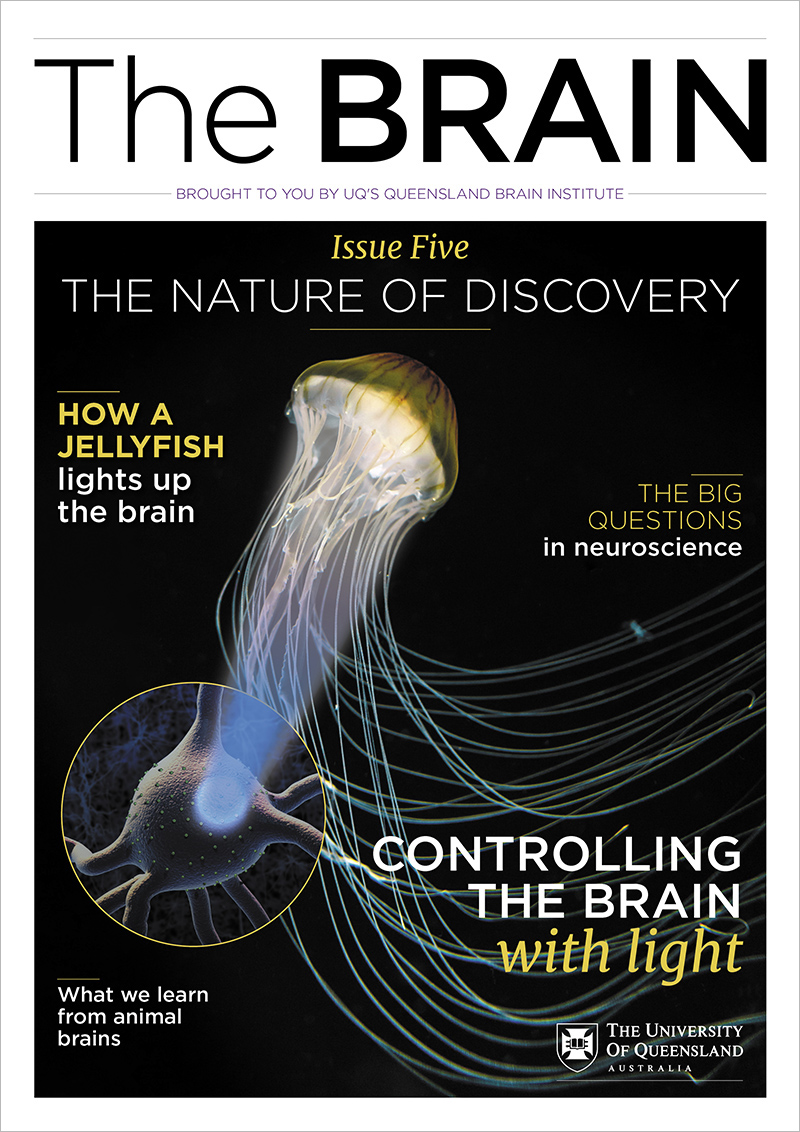Deep brain stimulation to treat Parkinson’s and OCD

Queensland Brain Institute (QBI) Director, Professor Pankaj Sah, Professor Peter Silburn, Dr Philip Mosley and Associate Professor Terry Coyne are using deep brain stimulation (DBS) technology to treat a range of neurological disorders such as movement disorders, and also extending this method to manage mental illnesses, such as obsessive compulsive disorder (OCD).
The need
It is estimated that in 2014, 69,208 Australians were living with Parkinson’s disease, the most well-known movement disorder. Of this number, 53 per cent were male and 47 per cent were female. Based on these estimates, approximately one in every 340 people in Australia lives with Parkinson’s. This is expected to grow in the coming years as our population ages.
Close to three per cent of Australians will experience OCD in their lifetime. Symptoms normally develop fully for the first time in adolescence, although children as young as 6 or 7 may also have symptoms.
The goal
Brain stimulation technology uses surgically implanted electrodes to deliver electrical currents to specific brain regions to control a targeted function, such as movement. This stimulation evokes control over the neural activity, allowing QBI researchers and practitioners to treat conditions such as Parkinson’s and OCD.
In an Australian first trial, Professor Sah, Dr Mosley, Associate Professor Coyne and Professor Silburn showed deep brain stimulation can help people with severe OCD – even in cases where patients haven’t responded to previous treatments. The researchers are now looking at using DBS to treat anorexia nervosa, a disease with the highest mortality rate of any psychiatric disorder in young women.
Professor Silburn and his team, together with Neurosciences Queensland and Abbott Neuromodulation, developed a remote care platform that allows patients to access treatment for Parkinson’s from anywhere in the world. This platform also shows promise for helping people living with chronic depression and other psychiatric conditions.
Our health impact
Parkinson’s continues to be associated with significant and growing health system costs, productivity losses and other burdens. Parkinson’s Australia reports the cost of the disease to be just under $10 billion per year, with that figure to escalate annually as the number of people with Parkinson's disease is expected to grow at three times the rate of population growth.
Meanwhile, 45 per cent of Australians are estimated to experience mental illness in their lifetime. The Australian Institute of Health and Welfare found this figure had a massive impact on the budget with $11 billion, or $431 per person, spent on mental health-related services in Australia during 2019–20.
Deep brain stimulation has the potential to bring relief to people living with – and their carers – movement disorders and mental health conditions. The research – alongside the clinical trials – continues to unlock discoveries in hopes of restoring activity in deteriorating brain regions while providing effective and rapid intervention.

